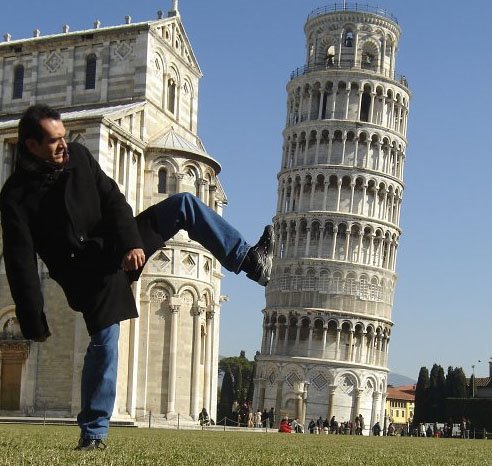A fantastic photograph of the Leaning Tower of Pisa which clearly shows that pictures never lie — except when they do! Continue reading
Daphne Bavelier: Your Brain on Video Games (Video)
The media often portrays the negative effects of video games, however brain scientist Daphne Bavelier argues that action video games (for example Call of Duty – Black Ops) can have a significant and long lasting positive impact on our cognition. In her talk she shares research data that supports the remarkable viewpoint that, in moderate doses, action video games can dramatically improve brain plasticity, vision, attention and learning.
Putting Eyewitness Testimony to the Test
Since the discovery of DNA profiling in the mid 1980’s, there have been over 300 criminal exonerations in the USA alone. That’s over 300 innocent people imprisoned for a crime they did not commit. Studies in the USA have also shown that approximately 73% of these convictions incorporated eyewitness testimony as the primary piece of evidence in their respective cases. Continue reading
A Bird In The Hand Illusion
Dan Gilbert: Why Are We Happy? Why Aren’t We Happy? (Video)
http://www.youtube.com/watch?v=LTO_dZUvbJA
In this video Dan Gilbert talks about our psychological immune system and posits the idea that we can be happy even when we do not get the things we want. How can we be happy when our desires are not being filled? “Because happiness can be synthesized” Gilbert claims.
Related articles
- Dan Gilbert: Why We Make Bad Decisions (Video) (whatispsychology.biz)
How Reliable is Eyewitness Testimony?
In 1984, Maryland USA, Kirk Bloodsworth was given the death penalty. His conviction was based solely on 5 eye-witnesses who all claimed to have seen him commit a horrific crime. After 9 years on death row, he was exonerated by DNA evidence. He was innocent. Continue reading






